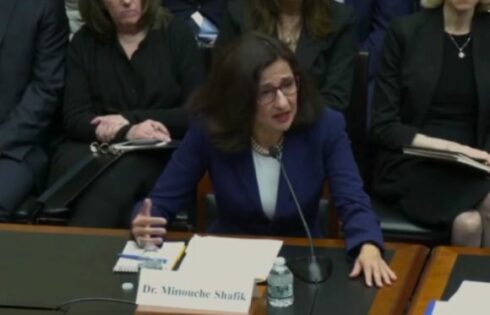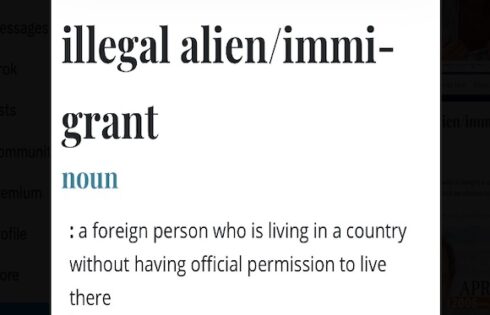
As a college student, you may not have ever heard about what your student government was doing.
I certainly didn’t, and I was majoring in a civics-related field. After all, it’s not exactly alluring stuff.
Still, the one place you’re sure to be kept up to date on such matters is your campus student newspaper. In between the copious amounts of tedium you may occasionally discover something worthwhile. Or humorous. Or both.
While student governments don’t really have all that much power, they can affect how monies are allocated in certain circumstances. A recent kerfuffle among the UC Santa Barbara Associated Students is a nigh-perfect example of both the imagined self-importance of its members … and its silliness.
Food/global warming activist and Associated Students Senator Taylor Tait had put forth a bill which would have mandated only vegetarian food be served at functions funded by the A.S.
Why? “To promote sustainability and reduce the carbon footprint among students.”
A.S. sustainability policy already requires “sufficient vegetarian and vegan options that are comparable to non-vegetarian options” at A.S.-funded events; however, Tait felt the need to go further. We have to save the planet, after all.
MORE: Tweets from student gov. leaders show racial animus toward whites
Though her bill included a clause to allow certain cultural organizations to serve meat at functions when needed, these groups would need to get permission ahead of time. Before putting forth her bill, Tait didn’t bother to get the opinions of groups that might be affected as she “sees environmentalism as something that is open to all identities.”
“I haven’t met an environmental org that was exclusive to anyone’s culture,” Tait said. And hey — she did talk with her “housemates and friends” about the bill. “Instead of free pepperoni pizza you get free cheese pizza. How does that make you feel?” she had asked.
Oops.
Esmeralda Quintero-Cubillan, the A.S. External Vice President for Statewide Affairs, said Tait’s bill invoked white supremacy and “anti-Indigeneity” as “veganism and vegetarianism are specifically rooted” in those concepts. (Remember that Native Americans lived in harmony with nature and “understood the inherent dangers of overtaxing the earth and her creatures.” Well, sort of.)
“I’m very uncomfortable with the idea of this [amendment] being enforced and being ignorant to cultural foods and cultural orgs,” Quintero-Cubillan said. “A.S. has so many BCUs that put on culturally specific events, and this feels like it lacks tact.”
Former A.S. Food and Beverage Chair Manny Roman added “Why are you forcing people who don’t have this culture to request because of the way that they live? Do you realize you’re telling people, ‘You need permission in order to do this?’”
Ultimately, the bill was altered to mandate only half of food options be vegan, and cultural groups were “completely exempt” from it.
Bill co-sponsor Varun Iyer said the original intention of the bill “was never to limit” food options of cultural groups; he and the other sponsors just didn’t see it “from that [particular] lens.”
MORE: Rutgers Law student government mandates critical race theory training for student groups
IMAGE: Svetlanamiku / Shutterstock.com
Like The College Fix on Facebook / Follow us on Twitter





Please join the conversation about our stories on Facebook, Twitter, Instagram, Reddit, MeWe, Rumble, Gab, Minds and Gettr.